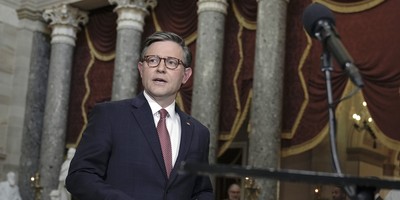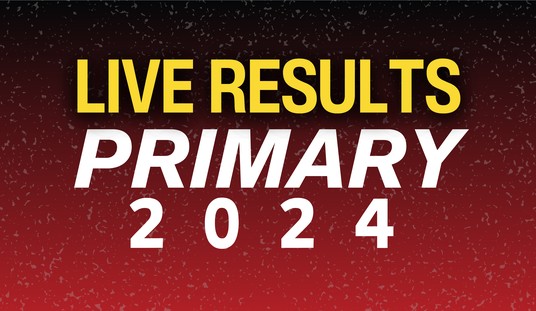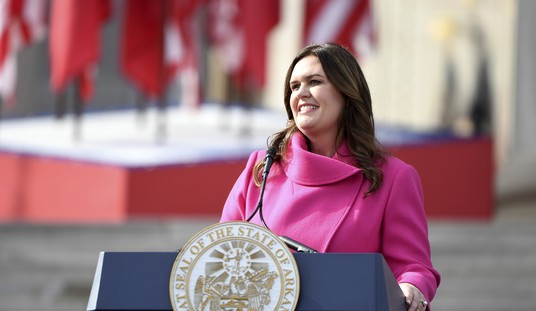President Barack Obama next week will visit Vietnam, which his own State Department last month certified is still controlled -- four decades after the fall of Saigon -- by the Communist Party.
"The Socialist Republic of Vietnam is an authoritarian state ruled by a single party, the Communist Party of Vietnam," says the Country Report on Human Rights in Vietnam that Secretary of State John Kerry released in April.
Obama's agenda in this communist nation, according to the White House, will feature efforts to promote the deal his administration has negotiated to join the United States, Vietnam and 10 other nations in an economic "partnership."
Obama will stress -- while in Vietnam -- that he wants this "partnership" officially sealed while he still holds office in the United States.
"During meetings and events in Hanoi and Ho Chi Minh City, the president will discuss the importance of approving the Trans-Pacific Partnership this year," the White House said in a statement last week.
The "Trans-Pacific Partnership" the administration has negotiated with Vietnam, Malaysia, Brunei, Singapore, Australia, New Zealand, Japan, Canada, Chile, Mexico and Peru is built around a fundamental contradiction. It purports to create an international "free-trade zone" that expressly declares that government ownership of business is "legitimate."
"The Trans-Pacific Partnership (TPP) is a proposed free trade agreement (FTA) among 12 Asia-Pacific countries, with both economic and strategic significance for the United States," said a Congressional Research Service explanation of the deal published in January. "If approved, it would be the largest FTA in which the United States participates."
Recommended
The CIA World Factbook section on Vietnam says: "State-owned enterprises now account for only about 40 (percent) of GDP."
The TPP Obama wants the U.S. Congress to approve says it seeks to promote "economic integration" among the parties "to liberalise trade and investment."
But as this column has noted before, it also asserts that the parties: "Affirm that state-owned enterprises can play a legitimate role in the diverse economies of the Parties, while recognizing that the provision of unfair advantages to state-owned enterprises undermines fair and open trade and investment, and resolve to establish rules for state-owned enterprises that promote a level playing field with privately owned businesses, transparency and sound business practices."
So, TPP seeks "economic integration" -- on terms that recognize the "legitimate role" of state-owned enterprises -- between the United States and a country ruled by the Communist Party where "about 40 percent of GDP" is derived from stated-owned enterprises.
The U.S. lifted a trade embargo on Vietnam in 1994, according to the Congressional Research Service, and has had diplomatic relations with Vietnam since 1995 and normal trade relations since 2001.
Back in 1995, according to data published by the Census Bureau, the United States had very little merchandise trade with Vietnam -- but ran a surplus. The U.S. exported about $252,300,000 in goods to Vietnam that year, exported $199,000,000 and ran a $53,300,000 surplus.
By 2002, the year after the U.S. normalized trade relations with Vietnam, the U.S. was running a large merchandise trade deficit with the socialist republic. That year, according to the Census Bureau, the U.S. exported about $580,000,000 in goods to Vietnam, imported $2,394,800,000 and ran a deficit of $1,814,800,000.
In 2015, the United States ran a record merchandise trade deficit with Vietnam. The U.S. exported $7,071,700,000 in goods to Vietnam, imported $37,993,000,000 and ran a deficit of $30,921,400,000.
That was up $6,067,200,000 -- or 24.4 percent -- from the $24,854,200,000 merchandise trade deficit the U.S. ran with Vietnam in 2014.
So far this year, according to the Census Bureau data, the trend is continuing. In just the first three months of 2016, the U.S. exported $1,736,100,000 in goods to Vietnam, imported $9,931,000,000 and ran a first quarter merchandise trade deficit of $8,194,900,000.
As this column has argued before, the U.S. Constitution itself was a free-trade deal. It gave the federal Congress the power to regulate commerce both with foreign nations and among the states, creating a massive free-trade zone within the United States itself.
Our Constitution guaranteed the freedoms of religion, speech and assembly and denied the government the power to deprive people of life, liberty or property without due process of law.
When the 13th Amendment abolishing slavery was ratified at the end of the Civil War -- bringing this nation into closer alignment with its founding principle that God has given all men the unalienable right to liberty -- it ensured that all workers in this nation would be free.
The Berlin Wall came down more than a quarter-century ago, after the United States backed those who resisted Soviet aggression and called out and condemned the fundamental injustice of communism.
Now President Obama wants this country to hurry up and finalize a permanent business partnership with what his own State Department calls "an authoritarian state ruled by a single party, the Communist Party of Vietnam."

























Join the conversation as a VIP Member